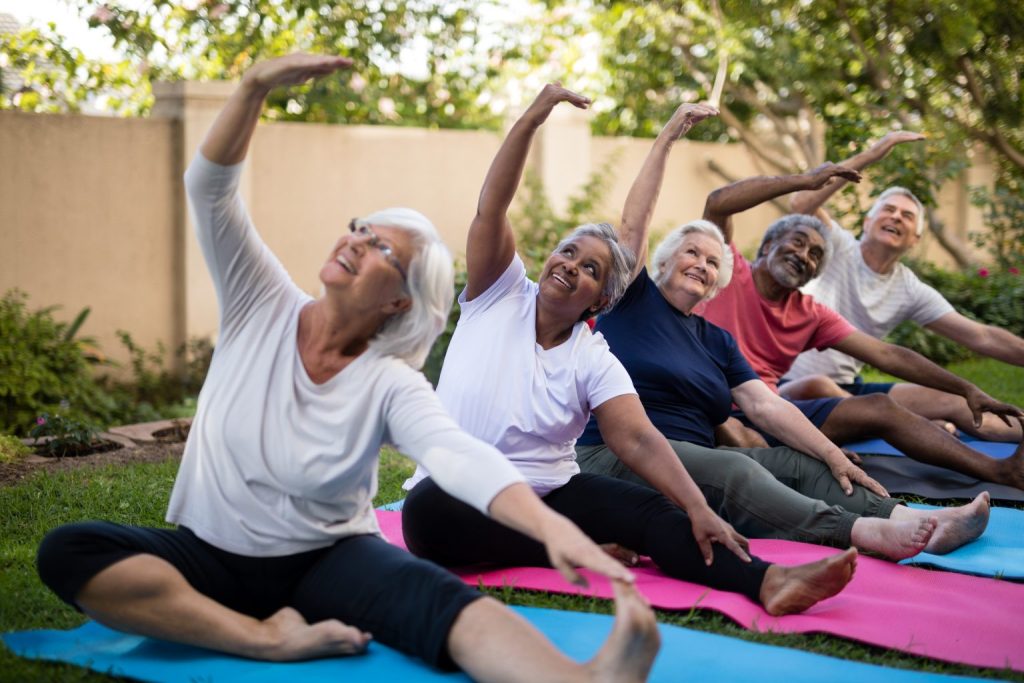Healthy aging is a multifaceted concept that encompasses physical, mental, and emotional well-being throughout the aging process. As we age, maintaining health and vitality becomes increasingly important for a high quality of life. Healthy aging is not just about living longer, but about living well and enjoying an active, fulfilling life. This article explores the key components of healthy aging, including lifestyle choices, preventive measures, and strategies for enhancing well-being as we grow older.

The Foundations of Healthy Aging
- Balanced Nutrition: Proper nutrition is crucial for maintaining health and vitality as we age. A balanced diet that includes a variety of fruits, vegetables, whole grains, lean proteins, and healthy fats supports overall health and helps prevent chronic diseases.
- Key Nutrients: Focus on nutrients that are important for aging adults, such as calcium and vitamin D for bone health, omega-3 fatty acids for heart health, and antioxidants for combating oxidative stress.
- Hydration: Staying well-hydrated is essential for maintaining energy levels, cognitive function, and overall bodily functions. Aim to drink adequate water throughout the day.
- Regular Physical Activity: Engaging in regular exercise is one of the most effective ways to promote healthy aging. Physical activity supports cardiovascular health, strengthens muscles and bones, and improves flexibility and balance.
- Types of Exercise: Incorporate a mix of aerobic exercises (e.g., walking, swimming), strength training (e.g., resistance exercises, weightlifting), and flexibility exercises (e.g., stretching, yoga).
- Consistency: Aim for at least 150 minutes of moderate-intensity aerobic activity or 75 minutes of vigorous activity per week, combined with muscle-strengthening activities on two or more days.
- Mental Stimulation: Keeping the brain active and engaged is vital for cognitive health as we age. Mental stimulation helps maintain cognitive function, memory, and overall mental acuity.
- Activities: Engage in activities that challenge the brain, such as reading, puzzles, learning new skills, and playing strategy games.
- Social Interaction: Socializing with others can also stimulate the mind and reduce the risk of cognitive decline. Participate in social activities, join clubs or groups, and maintain strong relationships.
- Preventive Healthcare: Regular medical check-ups and screenings are important for detecting and managing health conditions early. Preventive healthcare helps manage chronic diseases and maintain overall health.
- Routine Screenings: Keep up with routine screenings such as blood pressure checks, cholesterol levels, diabetes screenings, and cancer screenings (e.g., mammograms, colonoscopies).
- Vaccinations: Stay current with vaccinations, including flu shots and other recommended vaccines, to protect against preventable diseases.
- Emotional Well-being: Emotional health is a key component of healthy aging. Managing stress, maintaining a positive outlook, and addressing mental health concerns are important for overall well-being.
- Stress Management: Practice stress-reducing techniques such as mindfulness, meditation, and relaxation exercises. Managing stress helps improve mood and overall quality of life.
- Mental Health Support: Seek professional support if needed for mental health issues such as depression or anxiety. Therapy and counseling can provide valuable tools for managing emotional health.
- Adequate Sleep: Quality sleep is essential for physical and mental health. As we age, sleep patterns may change, but maintaining good sleep hygiene is important for overall well-being.
- Sleep Hygiene: Establish a regular sleep schedule, create a relaxing bedtime routine, and ensure a comfortable sleep environment to promote restful sleep.
- Address Sleep Disorders: If you experience sleep disturbances, such as insomnia or sleep apnea, seek medical advice to address these issues.
- Healthy Lifestyle Choices: Adopting healthy lifestyle habits can significantly impact aging. Choices such as avoiding smoking, limiting alcohol consumption, and maintaining a healthy weight contribute to overall health.
- Avoid Smoking: Smoking is associated with numerous health issues, including cardiovascular disease and respiratory problems. If you smoke, seek support to quit.
- Moderate Alcohol Consumption: Limit alcohol intake to moderate levels to reduce the risk of health problems associated with excessive drinking.

Strategies for Embracing Healthy Aging
- Set Realistic Goals: Set achievable health and wellness goals that align with your individual needs and capabilities. Celebrate progress and adjust goals as needed.
- Stay Engaged: Maintain a sense of purpose and engagement in life. Pursue hobbies, interests, and activities that bring joy and fulfillment.
- Build a Support Network: Surround yourself with supportive family, friends, and community members. A strong support network can provide emotional and practical assistance as you age.
- Adapt to Changes: Embrace changes that come with aging and adapt your lifestyle accordingly. Adjustments in physical activity, diet, and daily routines can help maintain health and quality of life.
- Practice Gratitude: Cultivate a sense of gratitude and positivity. Focusing on the positive aspects of life and expressing appreciation can enhance emotional well-being.
- Stay Informed: Keep up with the latest information and research on healthy aging. Stay informed about new health practices and advancements that may benefit your well-being.
- Seek Professional Advice: Consult healthcare professionals for personalized advice and recommendations on managing health as you age. Regular consultations with doctors, nutritionists, and fitness experts can provide valuable guidance.

Conclusion
Healthy aging is a comprehensive approach to maintaining well-being and vitality throughout the aging process. By focusing on balanced nutrition, regular physical activity, mental stimulation, preventive healthcare, emotional well-being, adequate sleep, and healthy lifestyle choices, individuals can enhance their quality of life as they grow older. Embrace the journey of aging with a positive outlook and proactive approach, and enjoy the many opportunities for growth, fulfillment, and vitality that each stage of life offers.


